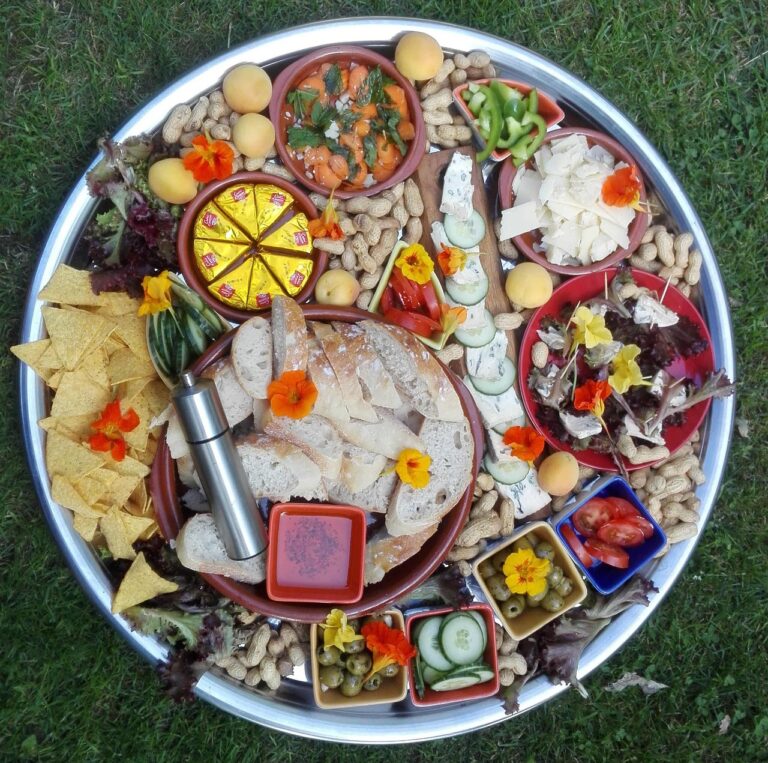How to Create a Menu for Metabolic Health: Cricket bet99 login, Sky11 login, Reddy anna online book
cricket bet99 login, sky11 login, reddy anna online book: Creating a menu for metabolic health is crucial for managing weight, improving energy levels, and promoting overall well-being. By incorporating nutrient-dense foods and balanced meals into your daily diet, you can support your metabolism and foster optimal health. In this article, we will discuss how to create a menu that supports metabolic health and provides you with the nutrients your body needs to function at its best.
Understanding Metabolic Health
Metabolism is the process by which your body converts food into energy. It involves a series of chemical reactions that break down nutrients from the food you eat and convert them into energy that your body can use. A well-functioning metabolism is essential for maintaining a healthy weight, supporting digestion, and promoting overall well-being.
When it comes to metabolic health, there are several key factors to consider:
Balanced Macronutrients: Your diet should include a balance of macronutrients, including carbohydrates, protein, and healthy fats. Each of these nutrients plays a crucial role in supporting metabolic function and overall health.
Nutrient-Dense Foods: Opt for nutrient-dense foods that provide essential vitamins, minerals, and antioxidants. These foods help support metabolic processes and promote overall well-being.
Hydration: Staying hydrated is essential for maintaining metabolic health. Water helps regulate body temperature, aids in digestion, and supports overall metabolism.
Regular Meals: Eating regular, balanced meals throughout the day helps keep your metabolism functioning optimally. Skipping meals or restricting calories can slow down metabolism and hinder weight management.
Now that we’ve covered the basics of metabolic health, let’s dive into how to create a menu that supports your metabolism and promotes optimal health.
Building a Metabolic-Friendly Menu
Start by incorporating a variety of nutrient-dense foods into your daily diet. Aim to fill your plate with a balance of lean proteins, whole grains, fruits, vegetables, and healthy fats. Here are some tips for creating a metabolic-friendly menu:
1. Include Lean Protein Sources: Protein is essential for supporting metabolism, promoting satiety, and maintaining muscle mass. Include lean protein sources such as chicken, turkey, fish, tofu, beans, and lentils in your meals.
2. Add Whole Grains: Whole grains are rich in fiber, vitamins, and minerals that support metabolic health. Choose whole grains such as quinoa, brown rice, oats, and barley to provide sustained energy throughout the day.
3. Incorporate Fruits and Vegetables: Fruits and vegetables are packed with vitamins, minerals, and antioxidants that support metabolic processes. Include a variety of colorful fruits and vegetables in your meals to promote overall health.
4. Include Healthy Fats: Healthy fats, such as avocados, nuts, seeds, and olive oil, are essential for supporting metabolism and promoting overall health. Include a source of healthy fats in each meal to support nutrient absorption and energy production.
5. Stay Hydrated: Drink plenty of water throughout the day to support metabolic processes, aid digestion, and promote overall well-being. Aim to drink at least 8-10 glasses of water daily to stay hydrated.
6. Avoid Processed Foods and Sugary Drinks: Processed foods, sugary drinks, and refined sugars can disrupt metabolic function and hinder weight management. Opt for whole, minimally processed foods to support metabolic health.
Creating a Balanced Meal Plan
Now that you have a better understanding of how to build a metabolic-friendly menu, let’s put it all together into a sample meal plan. Here’s an example of a day’s worth of meals that supports metabolic health:
Breakfast:
– Greek yogurt with berries and almonds
– Whole grain toast with avocado
– Green tea or black coffee
Lunch:
– Grilled chicken salad with mixed greens, cherry tomatoes, cucumbers, and a balsamic vinaigrette
– Quinoa or brown rice on the side
– Water with lemon or herbal tea
Snack:
– Hummus with carrot sticks or cucumber slices
– Apple slices with almond butter
Dinner:
– Baked salmon with roasted sweet potatoes and broccoli
– Mixed green salad with olive oil and vinegar dressing
– Herbal tea or water with lime
Remember, consistency is key when it comes to supporting metabolic health. Strive to eat balanced, nutrient-dense meals throughout the day and stay hydrated to keep your metabolism functioning optimally.
FAQs
Q: Can skipping meals affect my metabolism?
A: Yes, skipping meals or restricting calories can slow down your metabolism and hinder weight management. It’s important to eat regular, balanced meals to keep your metabolism functioning optimally.
Q: How can I boost my metabolism naturally?
A: You can boost your metabolism naturally by incorporating regular physical activity, staying hydrated, getting an adequate amount of sleep, and eating a balanced diet rich in whole, nutrient-dense foods.
Q: Are there any specific foods that can help support metabolic health?
A: Yes, certain foods, such as lean proteins, whole grains, fruits, vegetables, and healthy fats, can support metabolic health. Including these foods in your daily diet can help promote optimal metabolic function.
In conclusion, creating a menu for metabolic health involves incorporating nutrient-dense foods, balanced meals, and staying hydrated. By following these guidelines and making healthy choices, you can support your metabolism and promote overall well-being. Remember to listen to your body’s cues, eat mindfully, and strive for consistency in your dietary habits to support metabolic health.







